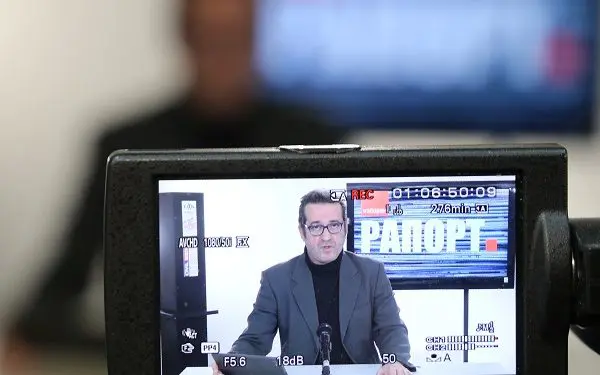In today’s 25th edition of CIVIL’s Election Report, we publish two stories, one from a “whistleblower” from an election board, and the second one is about a disturbing situation that a family of a disabled person is facing.
Testimony of a member of an election board: The day was full of problems, the citizens were respectful and patient, the preparation was poor.
A member of an election board in the country, who asked to remain anonymous, shared with CIVIL his experience from election day, October 17, as well as from the training they received from the SEC.
Regarding the training, our source says that there were two trainings. At the first training, apart from the dull explaining, more specifically, reading from slides, there was nothing more. At the second training, a fingerprint device had been brought, but there was pushing so many of those attending the event could not see anything. The remaining part was more slide reading aloud.
“On Election Day, October 17, the fingerprint device was not working, it was neither reading fingerprints, nor ID’s, nothing” – says for CIVIL our source, member of an election board, which number and location CIVIL is not publishing, with the purpose to protect the source.
The president of the election board tried to get guidelines from the Municipal Election Commission, but they only told him that they were familiar with the problem and that they need to continue trying to put the devices into function.
Voters of that polling station, according to our source, were extremely respectful and patient, with the exception of two cases who had nothing to do with the functioning of the fingerprint devises.
“The fingerprint device could hardly recognise fingerprints, in most cases we had to use all possible options. It was unpleasant for the people. Some explained they were not criminals and asked why there was a problem. Others shyly explained that their hands were damaged too much from work. We explained to them that the problem wasn’t because of them” – says our source, adding statistics that the fingerprint device hadn’t worked at all for every sixth voter.
More specifically, almost 15% of the voters of that polling station had a problem registering on the biometric device.
According to data from the ground, this percentage of unsuccessful scanning with biometric devices in some polling stations is much higher. The devices hadn’t read data of a greater number of citizens with a right to vote.
Furthermore, the link that the election board received for sending reports to the SEC hadn’t worked at all. That is why the election board had no other choice but to use the old way – to send the reports on Viber.
And that’s not all. The system frequently had to be restarted. This caused long lines in front of the polling station. The police were also called for help, but even that didn’t help much.
For a vote more, impossible combinations and pressures are made
Another disturbing story comes from our observers on the ground. This report is also completely anonymized, at the request of the persons who reported the case.
In one municipality, a family with a disabled person reported that they were under pressure from a political party. The concerned disabled person in this reports has limited capacity and is unable vote.
However, that person is on the Voters Register, which was a reason for a member of an election board, member of a political party, to convince the family of the disabled person who is unable to vote to register to vote on Saturday, October 16.
When informed that their family member is unable to vote, the member of the election board continued convincing them that another member of the family could vote instead of the disabled person.
Certainly, if that person votes for the “appropriate” party.
CIVIL’s observer in the report indicates also that the family had turned to the authorities multiple times to inform that in the Voters Register they have a person who is unable to vote.
Pressures and obstruction of the work of CIVIL’s observers
CIVIL’s observers faced many cases of obstruction in their work. In as many as 14 cases, our observers were denied access to the polling stations under all kinds of excuses. The organization informed the public and the international community about this and expresses hope that in the second round of the voting this will not repeat.
CIVIL info
The second round of the voting will be observed by 284 accredited observers of CIVIL, like in the first round. During the voting, CIVIL will hold multiple press conferences at 10.00 am, 12.00 pm, 4.00 pm and 7.01 pm, as well as in one or more extraordinary time periods.
Xhabir Deralla in cooperation with CIVIL’s Monitoring Team
Camera: Atanas Petrovski
Realization and editing: Arian Mehmeti
Translation: N. Cvetkovska
















